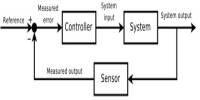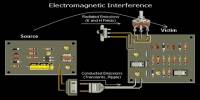Through the middle of the century, as vehicle electrification picks up speed and nations try to cut greenhouse gas emissions, there will be a sharp increase in demand for battery-grade lithium, nickel, cobalt, manganese, and platinum.
According to recent Cornell University research published in Nature Communications, this increase in demand will also result in a number of economic and supply-chain issues.
In the new paper, senior author Fengqi You, professor in energy systems engineering, and his colleagues examined 48 countries that are committed to playing a strong role in electrifying transportation, including the U.S., China and India.
The need for lithium will rise globally by 2,909% from the level of 2020 if 40% of vehicles are electric by the year 2050. If 100% of vehicles are electric by 2050, the need for lithium more than doubles, to 7,513%.
In a world where all vehicles are electric from 2010 to 2050, the annual demand for lithium would rise from 747 metric tons to 2.2 million metric tons.
For instance, by the middle of the century, the need for nickel will outpace that for other essential metals, with a global demand ranging from 2 million metric tons when just 40% of vehicles are electric to 5.2 million metric tons when all vehicles are electric.
The annual demand for cobalt (ranging from 0.3 to 0.8 million metric tons) and manganese (ranging from 0.2 to 0.5 million metric tons) will rise by the same order of magnitude in 2050, according to the paper.
Currently, critical metals and minerals are centralized in politically unstable Chile, Congo, Indonesia, Brazil, Argentina and South Africa, according to the World Bank.
“The unstable supplies of critical metals and minerals can exacerbate supply risks under surging demand,” You said.
The experts warn against electrifying heavy-duty vehicles because they use more key metals than other types of vehicles. Even though they only make up 4% to 11% of certain nations’ overall road fleets, the demand for essential metals required in batteries for heavy-duty electric cars will account for 62% of that demand in the coming decades.
Among the researchers’ suggestions for managing this demand:
- If a closed-loop supply chain could be established for the important metals in the future, building a circular economy would be essential. It is important to think about strategies to encourage the efficient recycling and timely recovery of used batteries.
- To lessen the dependency on key critical metals, nations should establish policies that prioritize alternate designs for cathodes/anodes and fuel-cell (green hydrogen) systems.
- The deployment of electric vehicles, the date of the carbon peak and carbon neutrality, and precise emission budgets should all be combined with decarbonization goals for the road transportation sector.
The research was supported by the National Science Foundation.















